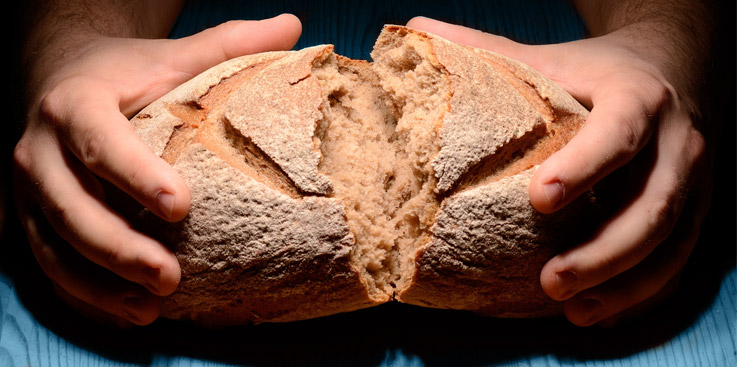Here is the verse in question:
“On the first day of the week, when the disciples came together to break bread, Paul, ready to depart the next day, spoke to them and continued his message until midnight.”
Is this meeting in which the disciples came together to break bread on the first day of the week sufficient evidence for the Sabbath being changed from the seventh day to the first day? Were Paul and the believers observing the first day as a holy day—or were they merely breaking bread without any suggestion of the Lord’s Supper or of established procedure?
First, the meeting in question did not begin on what is now known as Sunday at all, but on Saturday evening! According to the Bible method of reckoning time, each day begins at sunset and goes to the following sunset (Leviticus 23:32; Mark 1:32). Hence, the first day of the week begins on the evening of the seventh day, the second day of the week begins on the evening of the first day, and so on—just as Christmas Day begins on Christmas Eve, the evening before. Because “there were many lamps in the upper room where they were gathered together” (Acts 20:8), the meeting had to have begun on the dark part of the first day of the week—what we know as Saturday evening. Verse 7 says that Paul was “ready to depart the next day.” Using the Bible’s method of reckoning time, if Paul were now a Sunday observer, surely he wouldn’t have planned to travel on a holy day!
Would using the Roman reckoning of time, our method today, provide evidence for Sunday keeping by Paul and the believers? In this case, Paul’s meeting would have begun on Sunday evening after dark, and since the Bible says that they broke bread after midnight (Acts 20:7–11), this principal feature of the meeting would have occurred on Monday. Hence, if the breaking of bread made a new day holy, then Christians should be observing Monday!
Were Paul and the believers participating in a communion service designated for a holy day? Not only does the evidence refute this, but also, there is nothing in the Scriptures to show that the celebration of the Lord’s Supper was confined to any particular day of the week. Paul himself recorded, “As often as you eat this bread and drink this cup, you proclaim the Lord’s death until He comes (1 Corinthians 11:26, emphasis added).
Sunday is the Sabbath since the disciples broke bread then

